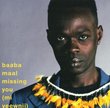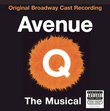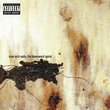| All Artists: Enso Quartet, Lucy Shelton Title: Ginastera: Complete String Quartets Members Wishing: 0 Total Copies: 0 Label: Naxos Original Release Date: 1/1/2009 Re-Release Date: 6/30/2009 Genre: Classical Styles: Chamber Music, Historical Periods, Classical (c.1770-1830) Number of Discs: 1 SwapaCD Credits: 1 UPC: 747313078073 |
Search - Enso Quartet, Lucy Shelton :: Ginastera: Complete String Quartets
CD DetailsSimilarly Requested CDs
|
CD ReviewsMusicWeb International/ Sept 2009 String Quartet Fan | 12/06/2009 (5 out of 5 stars) "One of numerous missionary projects launched by Naxos is the promotion of the music of the leading 20th Century Argentinean composer Alberto Ginastera. Previous to this issue they have encompassed his complete piano and keyboard works, two piano concertos, complete works for cello and piano and a licensed reissue of his two early and famous cowboy ballets. The latter, in particular the suite drawn from the 1941 ballet Estancia Op.8 has become the piece and indeed the sound-world by which he is best known. That sound could best be described as a feral percussive toccata-like style in which wild folk-derived cross-rhythms are hurled with great force in displays of musical muscularity. It is viscerally exciting but represents only one element--and indeed often an early one--of Ginastera's art. In simplistic terms his musical career can be divided into three distinct phases; "Objective Nationalism" (1934-1948), "Subjective Nationalism" (1948-1958), and "Neo-Expressionism" (1958-1983). They chart a gradual move away from an overtly Nationalistic/folk-based style to something more personal although with clearly Latin-American roots. Very neatly, each of his three String Quartets presented here fall into one of the periods and hence represent a self-contained over-view of his musical development...the performances here by the Enso Quartet from America are quite staggeringly brilliant. I don't think I have been so thrilled by the sound of a string quartet in a long time. These pieces could be a list of potential musical pot-holes with problems of intonation, ensemble, style, interpretation on every line. The Enso Quartet do not so much circumvent these problems as blaze their way through them as though they barely existed. It really is exceptionally fine quartet playing. The Juilliard Quartet were the premiere performers for the latter two quartets which probably explains why Ginastera felt there were no technical bounds--the Ensos are every bit their equal. My tiniest, inconsequential quibble is a recording that is fractionally close for my own personal taste but even this they turn to their favour with the closeness emphasising the earthy vigour of many of the passages as well as the accuracy of their playing.
The individual movement tempo descriptions are very telling--the String Quartet No. 1 Op. 20 opens with an Allegro violento ed agitato and ends with an Allegramente Rustico. But it would be quite wrong and misleading to characterize this music as though it were some kind of gymnastic high energy work out. For sure those movements are as exciting as anything in the quartet literature but I found the range of musical expression remarkable too. The strangely disquieting Presto Magico from the String Quartet No. 2 Op. 26 is a skittering night-scene full of disquieting sounds and rustlings--a half waking nightmare. For sure you can hear that Ginastera knows his Bartok but it's a nodding acquaintance and not at all plagiaristic. More interestingly, for the first time, in his use of a wide range of string effects from snaps to glissandi, I thought I heard the influence Ginastera had on his pupil Astor Piazzolla. By the time of the second quartet he was moving towards a form of 12-tone serialism. Please don't let that turn you away. Yes, he writes in a expressionist and dissonant style but by goodness it is expressive--there is nothing dry or academic here. The finale of the second quartet is his ultimate instrumental tour-de-force--a Furioso of blistering venom. Again the Enso Quartet play as though all the hounds of hell were chasing them--playing that threatens the very limit of technical possibility and yet miraculously they storm through exultantly. After the first two quartets the third is strikingly different in many ways. Most obviously in its use of a soprano. To a degree I would have to say it is more a four movement song-cycle for soprano arranged around a instrumental Fantastico...the quartet provide a performance full of insight and imagination. I have enjoyed the music of Ginastera greatly before I heard this disc but I consider this a revelation--showing as it does a range and compositional technique of which, in my ignorance, I was previously unaware. I find it hard to believe that these magnificent pieces could be performed better than they are here by the Ens Quartet--seek out this group, they are clearly bound for greatness. One little foot-note; a particular quality of the ensemble that struck me as I listened was their tonal unanimity so how interesting to read that they play on a set of matched modern instruments made by London-based maker Nigel Harris: clearly magnificent instruments played to within an inch of their lives by superb musicians. If I could give this disc a standing ovation of one in my front room after listening to it I would! String quartet playing of jaw-dropping prowess revealing masterpieces of the 20th century quartet literature. Nick Barnard" |

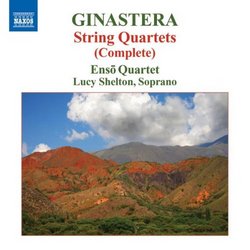
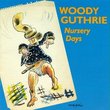
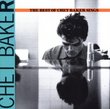
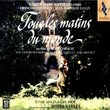
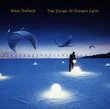

![Seussical [2000 Original Broadway Cast]](https://nationalbookswap.com/cd//m/02/4802/514802.jpg)
